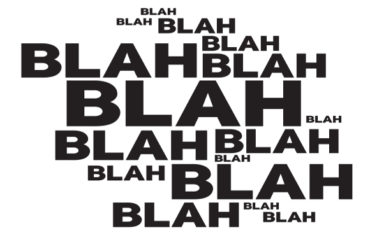
The ‘addictive power of white supremacy’
Much like the 2017 Charlottesville protest where the “fine people” hoax began among the left and mainstream media, the U.S. Capitol riot is tailor-made for academics to spew out the usual narratives.
The African American Policy Forum, a “think tank with the purpose of connecting academics, policy makers and activists to confront inequality,” hosted a virtual panel on January 13 to discuss “how white supremacist motivations” were behind the Capitol mob.
According to The Emory Wheel, “intersectionality” inventor Kimberlé Crenshaw moderated the event because she “felt compelled” to lead such a dialogue given the riot’s “implications for the country.”
The academic who coined “white rage,” Emory University African American Studies Professor Carol Anderson, said such rage was the motivation behind the January 6 “existential threat to democracy” … and was the reason Donald Trump got into the White House in the first place.
“This is why we have Black codes after the Civil War. This is why we have massive resistance after Brown [v. Board Ed.], the war on drugs after the Civil Rights Movement, Donald Trump after Barack Obama,” Anderson said.
“When you see the kind mobilization and organizing that is happening in the Black community to gain hold of their rights, it is enraging,” Anderson continued. “That rage then comes up in terms of these policies … they then also sanction, approve the violence that reigns down on Black people.” (This is in line with how Anderson explained her concept four years ago.)
Anderson added the “success” of the Capitol attack was due to the “addictive power of white supremacy,” or the notion that “people of color aren’t seen as American citizens and therefore their votes are ‘illegitimate.’”
The University of Oregon’s Joe Lowndes, currently working on a book titled “White Whale: Race, Populism and the Destructive Power of Middle America,” claimed white supremacy is “at the heart of policing,” yet also supersedes law enforcement when necessary: The rioters “were willing to attack the police when they saw them not protecting their white interests.”
Yale’s David Blight criticized the media for failing “to appropriately cover” white supremacist insurrections across the country.
Meanwhile, The Eagle reports that at American University, School of Public Affairs lecturer Michael Fisher Jr. alleged the Capitol attack was “another instance in U.S. history where white supremacist rage, stoked by a political leader, erupted into violence.” Too many believed in colorblindness when Barack Obama assumed the presidency, Fisher said, and as a result we now need to “talk explicitly” about white supremacy.
Further, white rage is partly responsible for claims of “disputed [2020] election results” and “outright lies.” Fisher added white students should “seek out resources to learn about white supremacy in its many forms,” and then support groups like Black Lives Matter.
Fisher’s departmental colleague Steven Taylor said he feared the rioters “had a lot of official support” and that “democracy had died.” AU Vice President of Campus Life and Inclusive Excellence Fanta Aw urged faculty to make use of the Capitol riot in their classes so students can “understand where they’re at and what this really means for all of us.”
Read the Wheel and Eagle articles.
MORE: Carol Anderson uses Steve Scalise shooting to rip GOP health plan
MORE: College newspapers turn Capitol riot into Armageddon
IMAGE: Nikita Konashenkov / Shutterstock.com
Like The College Fix on Facebook / Follow us on Twitter





Please join the conversation about our stories on Facebook, Twitter, Instagram, Reddit, MeWe, Rumble, Gab, Minds and Gettr.